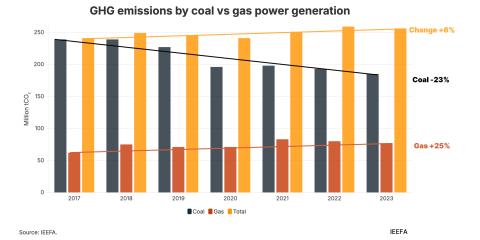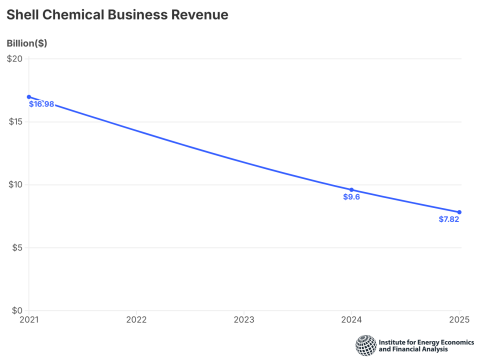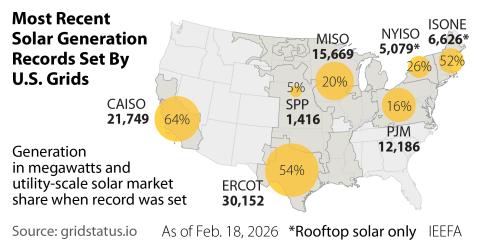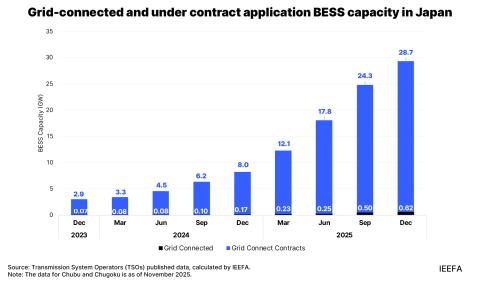Harnessing digital lending to empower MSMEs in India’s energy transition

Key Findings
The informal nature of MSMEs and the absence of relevant documentation puts many small enterprises at a disadvantage in accessing finance. To overcome this, the government has set up the Udyam registration portal for MSMEs. This portal, post registration of the MSMEs, facilitates access to government schemes such as the Credit Guarantee Fund Trust for Micro and Small Enterprises and loans under priority sector lending.
The Open Credit Enablement Network (OCEN) connects lenders, loan agents, collection/disbursement partners, data providers, and borrowers, reducing costs related to document verification, underwriting, and payment collection. Using OCEN, lenders can provide funding based on a borrower’s projected and past cash-flow data to determine creditworthiness. OCEN optimises the risk assessment process by enabling borrowers to share their data through consent-driven mechanisms without in-person visits.
To finance the MSE energy transition, loan providers should create a digital credit profile of the firms based on sources such as GST, bank statements and utility bills. This should be complemented with field visits to understand their operations and technology used, which can then be mapped to information available on online databases, such as the SIDHIEE and SAMEEEKSHA portals.
Micro, Medium and Small enterprises (MSMEs) figured prominently in the Finance Minister of India’s 2024 budget speech, with more than 20 mentions. Clearly, skills, jobs and energy efficiency in the MSME sector are a priority of the new government’s first budget.
The MSME sector represents close to 38% of India’s total manufacturing output, more than 60% of all employment and 45% of the country’s exports. However, since the pandemic MSMEs have faced increased challenges due to increased global and domestic supply chain regulations and the higher input costs of materials.
Transitioning the MSME sector in a just manner will be among the key challenges for India’s accelerating economic growth and consolidation. In this environment, MSMEs’ access to capital, technology and continued access to existing and new markets will be vital. While several financing lines and schemes already exist in India for MSMEs, the budget makes further credit lines and capital available to the sector. In addition to the challenges of implementing the existing schemes, we highlight the issues facing credit discovery, and suggest possible solutions.
Efforts to Ease MSME Financing Obstacles
Despite all the financing and guaranteeing schemes and programs launched for MSMEs in recent years, credit penetration in the sector is only 20%, among the lowest in Asia. This indicates the sector is still grappling with the high costs and risks associated with informal credit sources, such as loan sharks and local moneylenders. The vast, informal nature of MSMEs, and the absence of relevant documentation, puts many small enterprises at a disadvantage in accessing finance.
To overcome this challenge, the government has set up the Udyam Registration Portal for MSMEs. The digital portal is integrated with 37 government databases, including the Income Tax and Goods and Services Tax (GST) networks. Registration gives MSMEs online access to government schemes such as the Credit Guarantee Fund Trust for Micro and Small Enterprises (CGTSME) and loans under priority sector lending directly, streamlining the lending process.
However, many Informal Micro Enterprises (IMEs) lack a permanent account number or GST registration, and cannot register on the Udyam portal. To remedy this, the Small Industries Development Bank of India (SIDBI), launched the Udyam Assist Platform (UAP) in 2023. As of June 2024, 18.6 million IMEs had joined the UAP, and more than 45 million enterprises are registered on both Udyam portal and UAP.
For lenders, the India Stack – a free government-backed software platform – allows eligible third parties to access government IDs, payment networks and data to build a credit profile for MSMEs to facilitate financing. In addition, the Open Credit Enablement Network (OCEN) was launched to enable cash-flow based loans to MSMEs. The OCEN connects lenders, loan agents, collection/ disbursement partners, data providers and borrowers, reducing costs related to document verification, underwriting and physical payment collection. Using the OCEN, lenders can provide funding based on a borrower’s projected and past cash-flow data to determine creditworthiness. The OCEN optimises the risk assessment process by enabling borrowers to share their data from various sources through consent-driven mechanisms without in-person visits.
OCEN an Opportunity to Facilitate MSME Transition Financing
For lenders, the OCEN unlocks a potential customer base of 190 million micro and small enterprises. While focused more on small-ticket short-term loans, the OCEN can also be used to provide longer-term loans for capital expenditure. However, only about 12% or 7.7 million MSMEs in India are digitised. For digital lending through the OCEN, it is imperative that MSMEs have digitally captured expenditures, income and investments, also known as digital financial trails. For instance, by analysing GST data, insights into business size, financial risk and debt capacity can be gained.
India has more than 200 manufacturing clusters. More than 90% of these clusters comprise MSMEs. Their annual energy consumption equates to about 50 million tonnes of oil annually. This is because they undertake energy- and emissions-intensive activities such as metallurgy, metal production, glass and ceramics manufacturing, food processing and brick-making. As India moves away from emissions-intensive processes and business models, small and micro enterprises could be left behind due to their lack of bandwidth, technical expertise, financial stability and access to credit to transition their operations to low-carbon alternatives. Hence, a just transition that includes all MSMEs is essential, especially in energy-intensive industries.
The OCEN can be leveraged to ensure capital reaches these smaller units to finance their transition efforts, particularly in energy efficiency (EE). Extensive cluster-level mapping has shown how MSMEs can save energy, reduce emissions and boost profitability through technology upgrades. Lenders can access detailed data on specific clusters on the Simplified Digital Hands-on Information on Energy Efficiency (SIDHIEE) and SMSE EE Knowledge Sharing (SAMEEEKSHA) portals to assess the energy and cost savings potential for each technology.
The Way Forward
To finance the MSE energy transition, loan providers should be able to create a digital credit profile of MSEs based on sources such as GST, bank statements and utility bills. This should be complemented with field visits to understand their operations and technology used, which can then be mapped to information available on online databases, such as the SIDHIEE and SAMEEEKSHA portals for energy efficiency. This digital credit profile can then be sent to lenders on the OCEN, which will offer loan terms accordingly. It is important for lenders to also develop credit appraisal algorithms that take into consideration this additional information.
MSE digitalisation remains key to ensuring the benefits of the OCEN are leveraged. Hence, public institutions such as SIDBI should ensure that digital financial trails of MSEs are created and maintained. Additionally, SIDBI should spearhead this model and expand operations in MSE energy transition financing through a co-lending model with smaller financiers, closer to MSME clusters. The data obtained from credit disbursals through the OCEN should be made open source for other lenders and loan service providers (LSPs) to use in their credit scoring models. Harnessing India’s leaps in digitalisation of payments and records is key to overcoming institutional challenges to financing MSMEs’ energy transition.
This article was first published in The Financial Express.

















